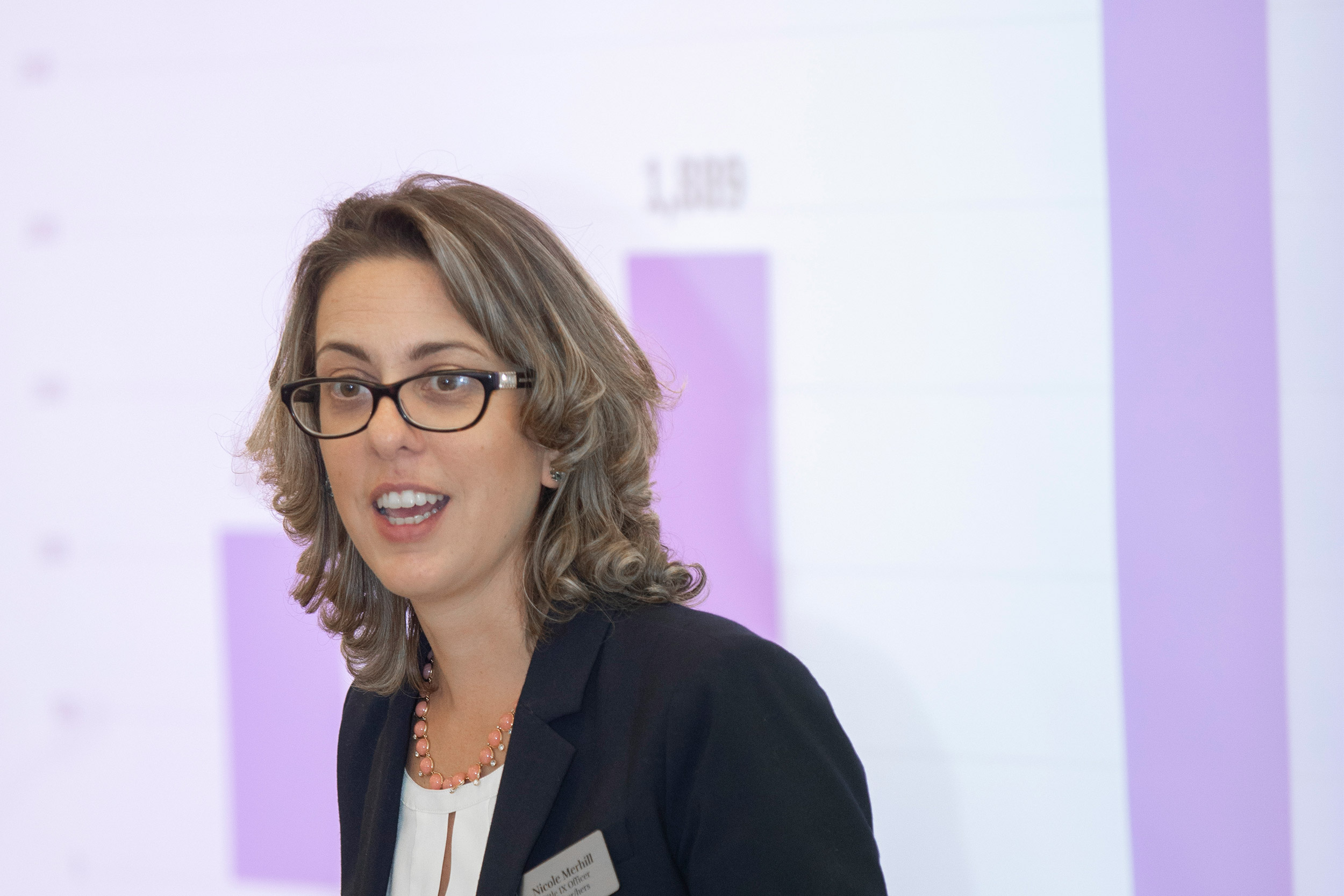
“In FY18, we were able to meet our goals in the areas of outreach, education, and prevention, significantly growing and improving upon our efforts to create a safer, more inclusive environment for the Harvard community,” said Title IX officer Nicole Merhill.
Kris Snibbe/Harvard file photo
Annual Title IX report released
Highlights efforts to prevent, respond to sexual and gender-based harassment
Harvard University’s Title IX Office and the Office for Dispute Resolution (ODR) today released their fiscal year 2018 annual report, a document that underscores continued progress in shared efforts to better prevent and respond to gender-based and sexual harassment.
“Creating a community in which all of us can do our best work is my highest priority as president,” said Larry Bacow in a Dec. 6 message to the University community highlighting the report. “Everyone who calls this University home should be made to feel welcome and free from harassment, and each of us has an important role to play in ensuring that outcome. It will take sustained effort to make Harvard a place where our respect for one another infuses every aspect of our work. I hope you will take up that important task with me and with your colleagues across the University.”
The Title IX Office leads Harvard’s efforts to provide educational programming and resources to prevent sexual and gender-based harassment, and it oversees the University’s responses to disclosures through its system of more than 50 School and administrative unit Title IX coordinators. ODR serves as the University’s central resource for investigating formal complaints that are filed under the Sexual and Gender-Based Harassment Policy and may also investigate allegations beyond the policy, when requested by Harvard’s Schools or units.
“I am happy to report that, in FY18, we were able to meet our goals in the areas of outreach, education, and prevention, significantly growing and improving upon our efforts to create a safer, more inclusive environment for the Harvard community,” said Title IX officer Nicole Merhill, whose office conducted 319 in-person training sessions and presentations to more than 6,400 students, staff, and faculty, a 58 percent increase from the previous year. “The key to our progress was our collaboration with critical partners, including the Office for Sexual Assault Prevention & Response (OSAPR) and the College’s Office of BGLTQ student life.”
In addition to increasing prevention initiatives, the Title IX Office developed new resources for the community, including a new website to speed access to resources and information, a resource folder titled Sexual & Gender-Based Harassment: Responding to Disclosures, and the publication of Gender Inclusive Guidelines.

The Title IX Office saw a steady growth in disclosures of sexual and gender-based harassment, which were up 55 percent. Formal complaints brought to ODR increased by 7 percent over the previous year (and 77 percent over fiscal 2016, its first full year of operation), with the number of complaints proceeding to investigation following initial review up by 32 percent.
“The ongoing communication and collaboration among ODR, the Title IX Office, and the Title IX coordinators has been instrumental in improving outcomes for individuals at Harvard, and the broader community at large,” said ODR Director Bill McCants. “ODR staff remain at all times keenly aware that we have been entrusted with investigating for all members of the Harvard community, in a prompt and fair manner, one of the most sensitive areas of human interaction, while protecting the privacy of those who interact with our office. We continue to be grateful for the efforts of our many partners to assist us in this important task.”
Those partners include OSAPR, the Office of Labor and Employee Relations, Harvard chaplains, Harvard University Health Services, Harvard University Disability Services Office, the Employee Assistance Program, the Harvard University Police Department, and the Harvard College Office of BGLTQ Student Life.
The Title IX Office continued to expand upon its resources in the months that followed fiscal 2018, which ended on June 30, offering several new initiatives this fall to serve students, faculty, and staff, including a student liaison committee to engage students in educating their peers about Title IX policies and resources on campus; development of required online training for all faculty and staff, as well as faculty and staff Title IX liaison committees, and the launch of a bystander intervention workshop.
“I am proud of the ongoing progress of ODR, the Title IX Office, and their partners, and I share in their aspirations to do more,” said deputy provost Peggy Newell. “Our collaborative, University-wide work is not done until we are able to create a community that is free from discrimination and harassment.”




